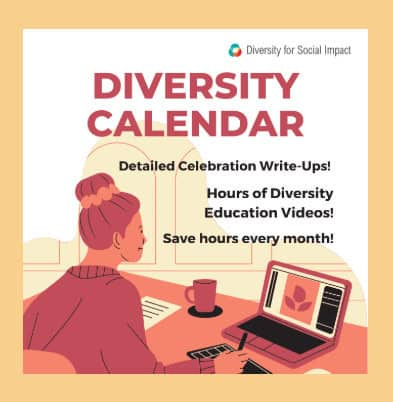Making Workplace Holiday Celebrations Welcoming for Everyone
How are you celebrating this year?
The holiday season is a time to connect, reflect, and celebrate. But in today’s diverse workplaces, planning holiday festivities can feel tricky. How do you celebrate in ways that honor different traditions, respect varying beliefs, and ensure everyone feels included?
Some employees may cherish Christmas traditions like decorating a tree or exchanging gifts. Others may celebrate Hanukkah, or Kwanzaa—or prefer to skip holiday celebrations altogether. For newcomers, the season might be an opportunity to experience local traditions for the first time.
Balancing these perspectives doesn’t mean erasing cherished customs. Instead, it’s about creating space for everyone to feel seen, respected, and valued.
Why Inclusive Holiday Celebrations Matter
Holidays are deeply personal, often tied to family, culture, and faith. For some, they’re about reconnecting with loved ones or honoring religious practices. For others, the season is a chance to recharge or reflect quietly. Inclusive holiday celebrations at work send a clear message: every employee’s identity matters.
Teams that feel included during the holidays also perform better—because feeling valued translates into higher engagement. A 2023 study by Glassdoor found that 76% of employees and job seekers prioritize diverse and inclusive workplaces. By embracing inclusive celebrations, you’re fostering stronger teams, boosting engagement, and creating a sense of belonging that extends beyond the holidays.
Practical Ways to Celebrate Inclusively
Inclusive celebrations don’t mean abandoning traditions like Christmas trees or holiday parties. Instead, they enrich the experience by inviting more voices and traditions into the celebration.
Acknowledge Diverse Holidays
Use a shared calendar to highlight celebrations like Hanukkah, Kwanzaa, Diwali, Winter Solstice, and Lunar New Year. This simple step promotes learning and helps everyone feel recognized. One year, we introduced a ‘Holiday Traditions Wall’ where employees could pin notes or photos about what they celebrated—it became a favorite part of our workplace culture.
To make it even easier, explore tools like our Diversity Calendar Kit. It’s a great resource for keeping track of important cultural and religious observances year-round, helping your team stay informed and proactive in fostering inclusion. Subscribing to the calendar ensures you never miss an opportunity to acknowledge meaningful moments for your employees and communities.
Balance Traditions
If a Christmas tree is part of the decor, pair it with symbols from other holidays, like a menorah, kinara, or Diwali lamps. Invite employees to bring decorations or share traditions that matter to them.
Keep Language Neutral
Opt for “holiday celebration” or “year-end gathering” instead of “Christmas party.” These terms include everyone without taking away from the festive spirit.
Celebrate the Spirit of Giving
Organize activities like charity drives or volunteer days. These initiatives focus on universal values like generosity and kindness, making the season meaningful for all. One year, our team organized a toy drive for local families—it was inspiring to see how small gestures could bring people together.
Offer Inclusive Food Options
Food brings people together, but dietary needs vary. Offer vegetarian, halal, kosher, and allergen-free options so everyone can enjoy the feast.
Be Flexible with Time Off
Not everyone’s most important holiday falls on December 25th. Offering flexible schedules allows employees to celebrate what matters most to them.
Practice Inclusive Scheduling
Plan holiday parties and celebrations during work hours to respect employees’ after-work commitments and caregiving responsibilities. This ensures everyone has the chance to participate without additional stress or obligations.
Addressing Over-Cautious Approaches
In some workplaces, efforts to be inclusive have led to avoiding traditional elements like Christmas trees or holiday lights altogether. While this comes from a place of respect, it can feel like erasing traditions instead of celebrating diversity.
A few years ago, one of my colleagues shared that seeing the office Christmas tree removed made them feel like their favorite tradition had been dismissed. That moment reminded me how important balance is.
The solution is balance. Traditional symbols can coexist with those from other holidays, creating an environment where all cultures are celebrated. For example, display a Christmas tree alongside a menorah or kinara, with small notes explaining their significance. These gestures not only celebrate traditions but also encourage learning and connection.
Welcoming Newcomers and Honoring Traditions
For employees new to the workplace—or the country—holiday celebrations can be an exciting way to connect. Simple activities like tree-decorating, sharing holiday treats, or hosting multicultural storytelling sessions allow them to experience local customs while also sharing their own.
At the same time, employees who have grown up with Christmas should feel their traditions are valued. Inclusivity doesn’t mean replacing—it means expanding and enriching traditions to reflect the diversity of the team.
Making It Personal
One of my favorite workplace memories was a multicultural holiday display we created as a team. From Christmas ornaments to Diwali diyas and even handwritten recipes for Lunar New Year dishes, it was a beautiful way to learn about each other. Every contribution told a story, and that sense of connection stayed with us long after the season ended.
Taking the Next Step - Consider DEI Workplace Certifications
If your organization is already implementing inclusive practices, have you considered pursuing DEI Workplace Certifications? These certifications validate your efforts and amplify your impact, positioning your company as a leader in diversity, equity, and inclusion.
The benefits are significant. DEI-certified organizations attract diverse talent and connect with like-minded businesses that value social responsibility. Certifications also enhance your branding, making your company stand out as an inclusive and socially responsible employer. It’s a powerful way to celebrate your DEI achievements and unlock new partnerships and opportunities.
Celebrate the People, Not Just the Season
Inclusive holiday celebrations aren’t just about decorations or menus—they’re about people. They’re about creating moments where everyone feels they belong, whether they’re celebrating Christmas, Kwanzaa, or simply enjoying a quiet season of rest.
This holiday season, ask yourself: What small changes can we make to ensure our celebrations reflect the diversity of our team? The answer lies in honoring traditions, introducing new ones, and fostering connections that last long after the holidays are over.



